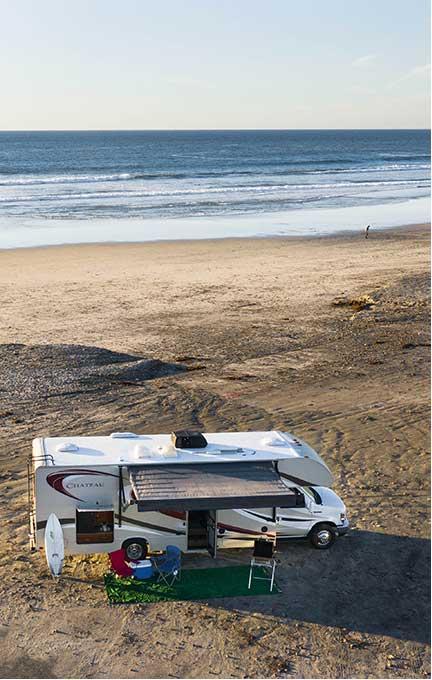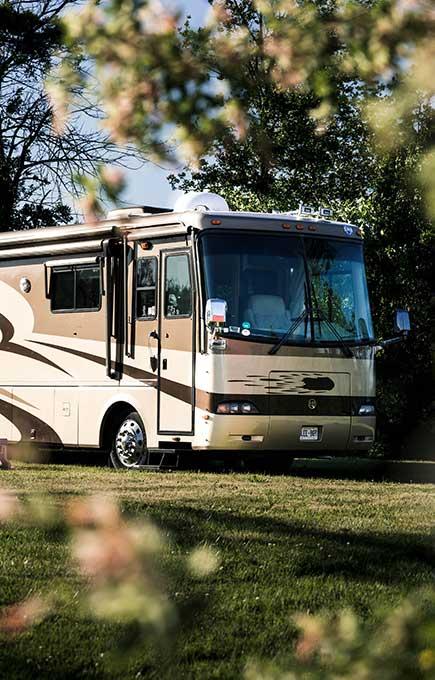If your wanderlust is not satisfied only by where the road can take you, this article is for you. Several modern-day overlanders have traveled the world in their trusty RV, hopping from mainland, to island, and even from continent to continent. If they can do it, so can you, but it isn’t always easy. Every situation is unique so you will have to do your research to make this happen, but we can get you pointed in the right direction.
Look for a ferry
If the island you are heading too is not too far off, then your best bet is to find a vehicle ferry that goes there. They will take you and your vehicle to your destination at the same time. Most ferries will have the capacity to carry your van or Class-B RV. Ferry’s are traveler friendly and accommodate vacationers with minimal hassle, even if the ferry goes from one country to another. You also have the advantage of being able to access your RV during the trip.
If you can’t find a ferry that will take you where you want to go, things start to get complicated, expensive, and challenging.
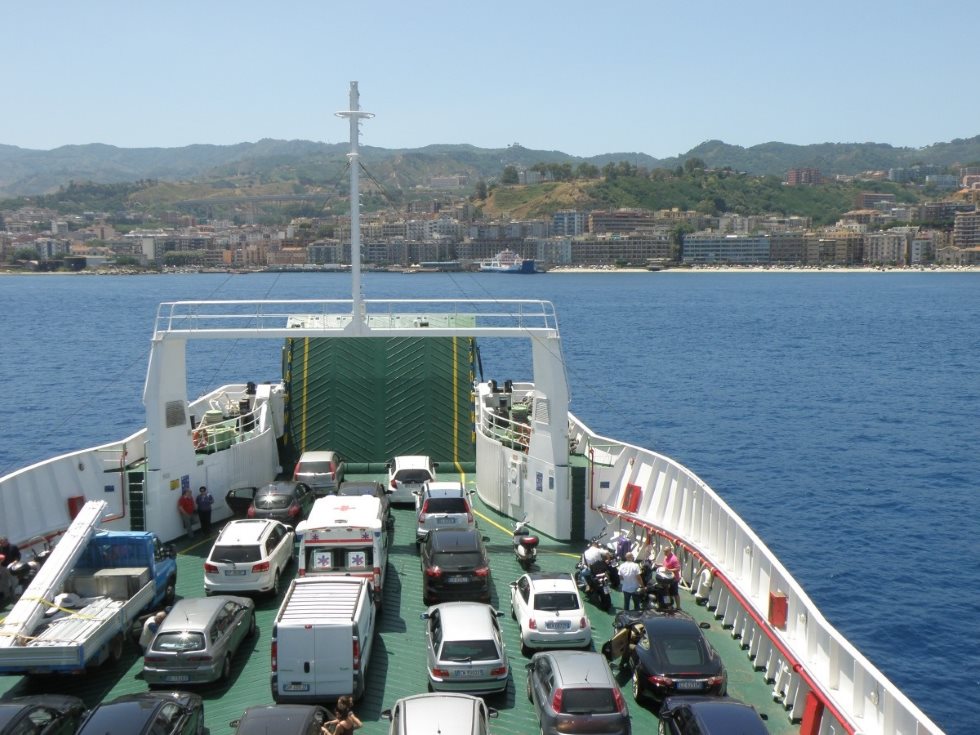
Shipping a Van as Cargo
When shipping your Van or RV as cargo, you are entrusting it into someone else’s care and it will generally take a good long time to get where it is going. Meanwhile, you can zip around by plane to wherever you want to go. That means either you need to ship it long before you leave, or you will be waiting for some time for it to arrive. Generally, you need to get to the destination before it does your van so you can pick it up after they unload it and customs has had a look.
It won’t be cheap. Vans are big, and space and weight are factored into the costs. Unlike giant corporations, you don’t have all that much bargaining power to get the best price. In addition to the cargo cost, you may have various port fees, import tariffs, taxes, property insurance, and other expenses to deal with. All told, shipping a Van long distance by boat will cost you around $2,000-$4,000. Typically, you can’t get a quote until a couple of months from when you want to ship out, but you can get rough estimates.
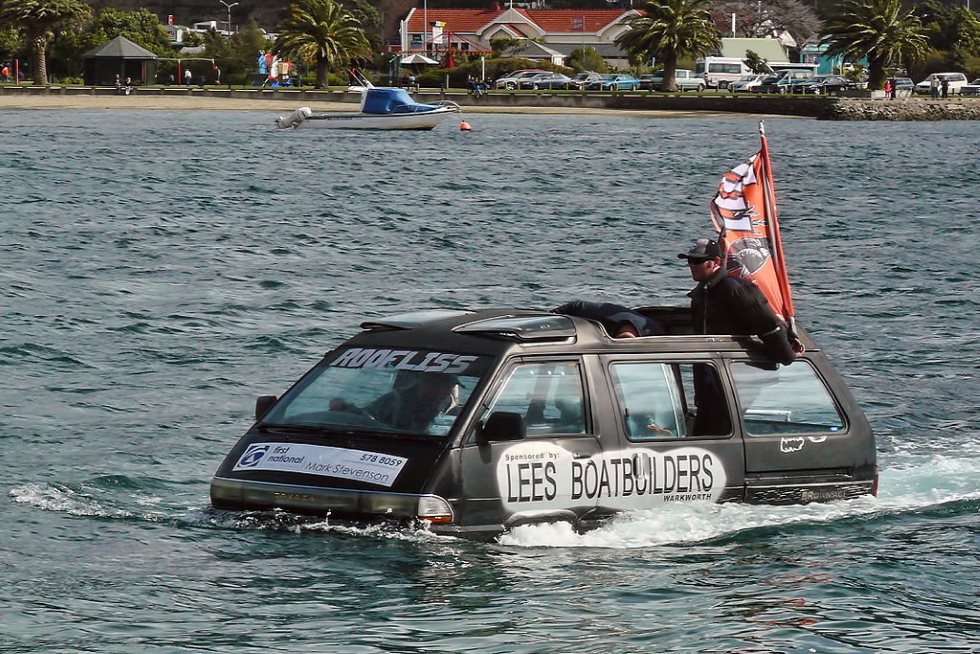
Shipping methods
There are three basic ways to ship a Van as cargo: Container, RORO, and On-Deck. That is also pretty much the order of desirability and expense. A container is the most expensive and the safest. On Deck is the least expensive and puts your vehicle at the highest risk. RORO (Roll-On Roll-Off) is right in the middle.
Container shipping
For this method, you will rent a container or contract with a container shipping company. Then you drive your Van into the container and secure it. The ship will load the container and take it to your destination where you can unload your vehicle. This is the most expensive method, but it has two key advantages. The first is that your vehicle is locked inside a box and thus safe from both the elements and potential thieves. The second is you can ship whatever else you need in the container as there will usually be quite a bit of additional room.
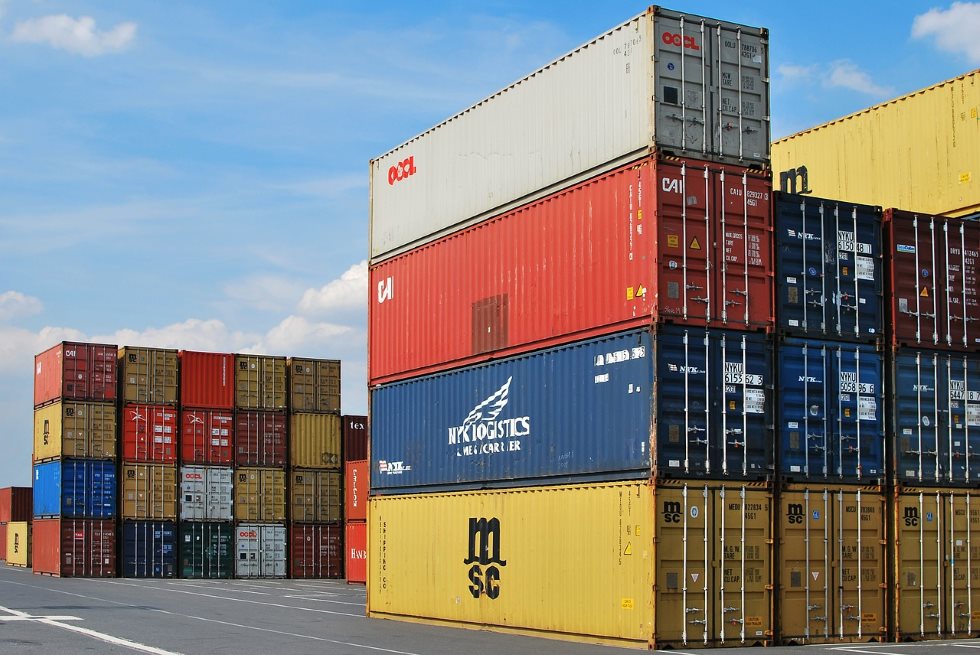
RORO
This is the most common way to ship cars overseas. You take your car to the port and then hand it over to the shipping company, They will drive it onto the ship, much like a ferry, and park it below decks. They then drive it off the ship at the other end where you pick it up. It is mostly protected from the weather during the journey, but dockworkers and sailors will have pretty much free access to your vehicle. If you ship this way, the less you have in your vehicle the better. Theft of personal items is, unfortunately, commonplace.
On-Deck
A crane will lift your vehicle onto the deck of a ship where it will be secured. It is then lifted back onto dry land at the other end. This tends to be the cheapest option, but it exposes your van to all kinds of potential dangers. Just the crane ride could deal some damage, and it will be exposed to the elements for the whole trip. Salt water spray is not good for motor vehicles.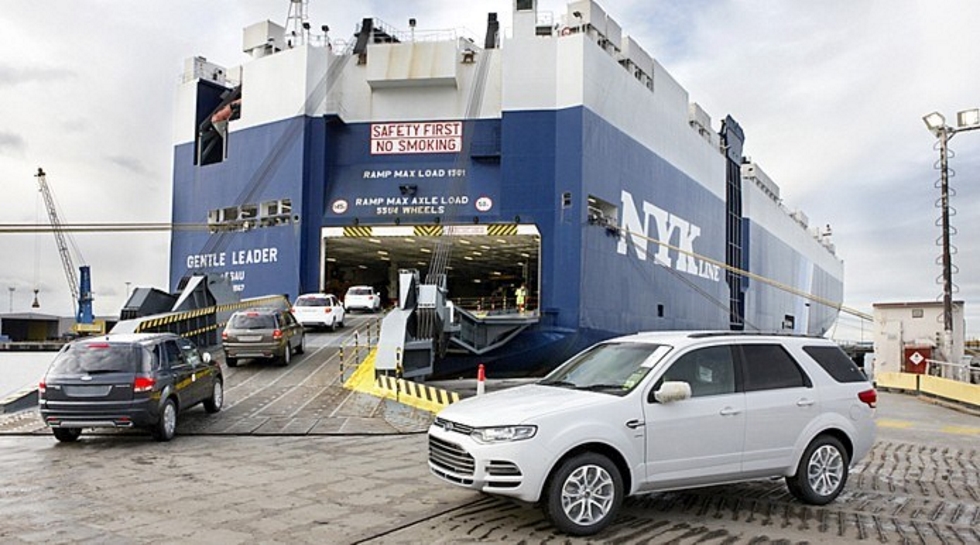
Going International
Things get extra challenging when you take your vehicle to another country. Every nation has its own rules. There may also be special treaties with your home country that can modify the usual regulations (usually in your favor). You really need to do your research or hire someone who has experience with the import and export of used vehicles. Even with an expert, you will have to do a fair amount of your own paperwork and legwork to get everything sorted out. Still, the value in an expert is you are less likely to make a mistake, and mistakes can be very costly.
Here are some of the challenges you will need to cope with.
- Import/Export duties and tariffs
- Vehicle registration in the new country
- Vehicle inspection requirements in the new country
- You need to wash the vehicle thoroughly to prevent biological contamination
- Safety equipment regulations
- Emptying all gas and propane tanks completely
- Insurance requirements
The key is to start researching and working on getting everything squared away as early as possible. It isn’t easy, but lots of people have successfully moved their RV from one country to another. So, as long as you are diligent, you will also succeed.

Swaps and rentals
If the prospect of shipping your RV is daunting, there are other options. Outdoorsy.com and other rental companies worldwide offer RVs and Vans you can rent. Outdoorsy offers RVs in the US, Canada, the UK, New Zealand, Australia, and more. There are also sites where you can swap RVs with others. They use your RV when in your country, and you use theirs when you are there. Generally, the shorter your trip, the more these options make sense. The longer you plan to be living the van-life abroad, the more it makes sense to work through the shipping process.
Ready for some island hopping? If you don’t yet have the Van of your dreams, try before you buy on Outdoorsy.com!




